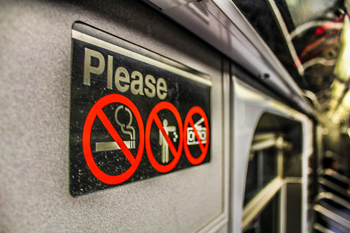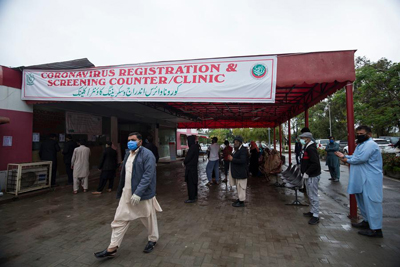Role of parents in preventing smoking among children

Smoking continues to be a significant health issue worldwide, including in Pakistan, where tobacco consumption is deeply rooted in societal habits and cultural practices. Despite increasing awareness about its harmful effects, smoking remains a challenge, especially among youth who are often vulnerable to peer pressure and media influence.
Parents, as primary role models and caregivers, hold a pivotal responsibility in shaping their children's attitudes toward smoking and ensuring they steer clear of this harmful habit. Parents are not just caregivers—they are architects of their children's future. Their guidance and vigilance can make all the difference in fostering healthier habits and mindsets.
Unfortunately, two out of every five smokers in Pakistan start smoking before the age of ten. In other words, nearly 40% of youth who have ever smoked tried their first cigarette before the age of 10. Approximately 37.8% of young people are exposed to secondhand smoke in public places, and 21% are exposed at home. This is alarming and nullifies all the efforts for tobacco control in Pakistan.
In Pakistan, tobacco products are widely accessible and often seen as a social norm, particularly in rural areas. While urban regions have witnessed efforts to limit public smoking and regulate tobacco advertising, loopholes in enforcement mean that children and teenagers can still find themselves exposed to pro-smoking influences. Add to this the glamorization of smoking in films and dramas and the prevalence of gatherings where smoking is common, and it becomes evident why young minds might be tempted to try tobacco.
Parents in Pakistan can take proactive steps to prevent their children from smoking. Parents should openly discuss the health risks associated with smoking, such as respiratory illnesses, cardiovascular issues, and cancer. Tailoring the conversation to their child's age and maturity helps ensure the message resonates.
Parental smoking behavior greatly influences children. If parents abstain from smoking, it strengthens their credibility when they advise their children against it.
By fostering a trusting relationship with their children, parents can create an environment where children feel comfortable discussing peer pressure or exposure to smoking-related scenarios. Encouraging dialogue is key to understanding their challenges and guiding them effectively.
Parents should be vigilant about the media their children consume and the company they keep. Limiting exposure to pro-smoking imagery and ensuring their children spend time with peers who value health can reduce temptations.
Promoting activities that boost physical and mental well-being—such as sports, arts, and community involvement—can help children build a positive self-image and find purpose without resorting to harmful habits.
In Pakistan's context, collaboration between parents, schools, and communities can amplify efforts to prevent smoking among children. Schools can play a vital role by integrating anti-smoking education into their curriculum, while parents and educators can jointly organize awareness campaigns. Communities, particularly in rural areas, can benefit from workshops and programs designed to destigmatize the idea of rejecting tobacco.
The fight against smoking among children is not a solitary effort; it requires the active participation of parents, supported by schools, communities, and the government. By understanding the cultural and societal dynamics unique to Pakistan, parents can tailor their strategies to effectively shield their children from the harmful allure of tobacco. In this way, they help nurture a healthier, smoke-free generation capable of making informed, life-enhancing choices.
To back the efforts of the parents, the government should make access to cigarettes illegal for young people. Pakistan may follow New Zealand in this regard. New Zealand has implemented a groundbreaking law that bans the sale of cigarettes to anyone born after December 31, 2008. This legislation is part of the country's effort to create a smoke-free generation and reduce smoking rates to near zero. The law ensures that individuals born after this date will never be able to legally purchase tobacco products in their lifetime. The United Kingdom is also considering a similar policy. A proposed bill aims to ban tobacco sales to individuals born on or after January 1, 2009. If passed, this policy would progressively raise the legal smoking age each year.
اردو مضامین
ترک سگریٹ نوشی کی مخالفت کیوں؟، ارشد رضوی

پاکستان سن 2002 میں ورلڈ ہیلتھ آرگنائزیشن ( ڈبلیو ایچ او ) کے فریم ورک کنوینشن آن ٹوبیکو کنٹرول (FCTC) کا رکن بنا تھا، تب سے اب ( 2023 ) تک اکیس سال گزر چکے ہیں پاکستان (اور دنیا بھر) میں سگریٹ نوشوں میں اضافہ ہی ہوا ہے۔ ایک رائے کے مطابق دو کروڑ نوے لاکھ ( 29,000,000 ) جبکہ بعض رپورٹس تین کروڑ دس لاکھ ( 31,000,000 ) سگریٹ نوشوں کی موجودگی کی بات کرتی ہیں، اگر پچیس کروڑ کی آبادی مان لی جائے تو پاکستان میں 12 فیصد آبادی تمباکو استعمال کرتی ہے۔
ترک سگریٹ نوشی میں مدد گار متبادل، ارشد رضوی

سگریٹ یا تمباکو نوشی کے نقصان دہ اثرات کے بارے میں ستر سال قبل ہونے والی ایک سٹڈ ی میں بتایا گیا تھاتب سے اب تک دنیا میں کروڑوں لوگ تمباکو سے متعلق بیماریوں کے باعث موت کی تاریک وادی میں جا چکے ہیں
صحت، تمباکو اور ریونیو، ارشد رضوی

تمباکو نوشی کا انسان سے رشتہ بہت پرانا ہے۔ تمباکو اور اس سے متعلق مصنوعات کی طویل تاریخ ہے جو 6000سال قبل مسیح میں ملتی ہے۔مقامی امریکیوں کے بارے میں کہا جاتا ہے کہ انہوں نے پہلے تمباکو کی کاشت شروع کی اور یہ 6000سال قبل مسیح میں ہی ہوا۔
انسانی صحت اور عالمی ادارہ صحت، ارشد رضوی

اگر عالمی ادارہ صحت کچھ مختلف طرزِ عمل اختیار نہیں کرتا اور تمباکو پالیسی میں جدّت کو قبول نہیں کرتاتو ادارہ دل، کینسر اور پھیپھڑوں کے امراض میں کمی کے اہداف کے حصول میں بہت پیچھے رہ جائے گا۔
جو فرد سگریٹ نوشی ترک کرنا چاہتا ہے اس کی نیکوٹین کی طلب اور نفسیات کو سامنے رکھتے ہوئے کونسلنگ کی ضرورت ہے، ڈاکٹر احسن لطیف

اگر ہم چاہتے ہیں کہ سگریٹ نوشی ختم ہو جائے تو سگریٹ پینے والوں کواس بارے میں تمام بحث میں سب سے آگے ہونا چاہئے تاکہ وہ اپنی ضرورتوں کا خیال رکھ سکیں۔
ما قبل کورونا اور ما بعد، ارشد رضوی

کورونا کے مابعد اثرات میں ایک خوفناک ترین اثر بڑے پیمانے پر دنیا کی آبادی کے ایک بڑے حصے کا خطِ غربت سے نیچے گِرنے کا اندیشہ ہے جس کے نتیجے میں بے روزگاری اور غربت میں غیر معمولی اضافہ ہو گا۔
OUR PROJECTS
Pakistan is a country with heavy use of tobacco. With more than 24 million...
Read MoreRESEARCH ARTICLES
The Birth of Harm Reduction Informs the World's Need for Safer Nicotine...
Read MoreWHAT WE DO?
Alternative Research Initiative (ARI) works to provide researched-based solutions...
Read More
